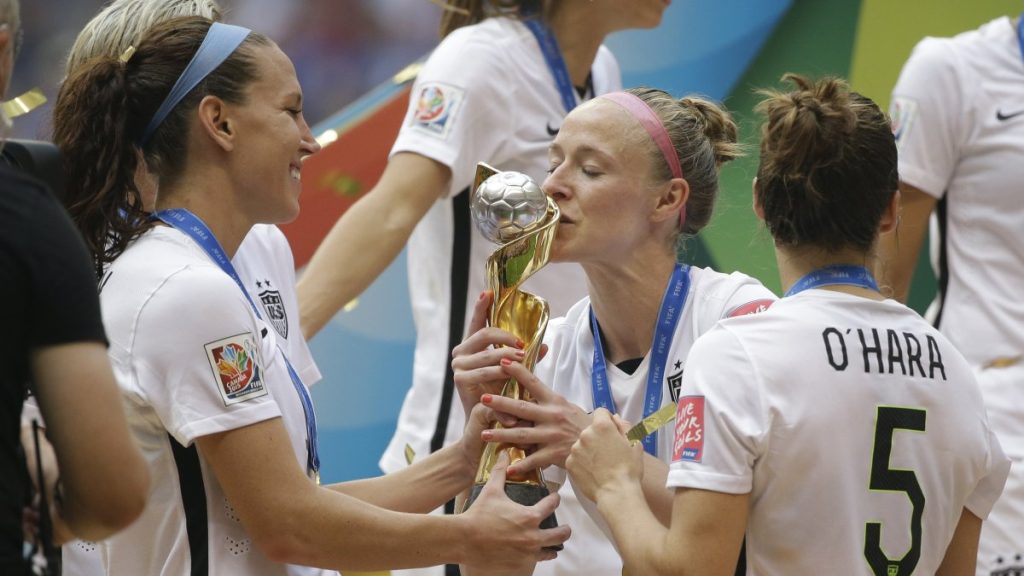The Women’s World Cup will expand to 48 teams starting in 2031, when the U.S. is expected to host the tournament, FIFA announced Friday.
The long-anticipated move brings the women’s event in line with the men’s World Cup, which will feature 48 teams for the first time in 2026, co-hosted by the U.S., Canada and Mexico.
The expansion is likely to add at least four stadiums and cities to the 2031 plans, with FIFA hinting the tournament could stretch into Mexico or other parts of the CONCACAF region.
It follows one month after FIFA President Gianni Infantino said there was just one candidate bidding for each of the 2031 and 2035 women’s tournaments — the U.S. followed by the U.K.
FIFA is expected to confirm these two hosts next year.
Brazil will host a 32-team Women’s World Cup in 2027, using just eight stadiums in eight cities, which were confirmed this week.
Brazil used 12 stadiums in 12 cities when it hosted the men’s World Cup in 2014, and the inaugural 48-team men’s tournament next year will use 16 stadiums — in 11 U.S. cities, three in Mexico and two in Canada.
FIFA said the expanded, 104-game tournament with 48 teams “will significantly broaden representation, offering more nations and players access to elite competition and accelerating investment in women’s football worldwide.”
The Women’s World Cup had just 16 teams as recently as the 2011 edition in Germany, 24 teams at each of the next two tournaments in Canada and France, then 32 teams for the first time in 2023, co-hosted by Australia and New Zealand.
The 2023 edition defied concerns that the tournament had grown too fast, would feature too many overmatched teams and result in lopsided scores.
In 2019, the defending champion U.S. team beat Thailand 13-0 in its opening group-stage game.
In 2023, the biggest win was the Netherlands beating Vietnam 7-0, and the tournament “set a new standard for global competitiveness,” Infantino said Friday in a statement, because “teams from all confederations won at least one game and teams from five confederations reached the knockout stage.”
The expansion plan was welcomed by the global players’ union FIFPRO, which called for “inclusive decision-making and cooperative planning.”
“It is critical that the global development of women’s competitions goes hand in hand with improved labor conditions and the advancement of players, as well as development further down the pyramid,” the Netherlands-based union said. “This is the only path to true sustainability, expansion and progress.”
In recent years, FIFA has updated and improved contractual protections for players and coaches during pregnancy and after giving birth.


